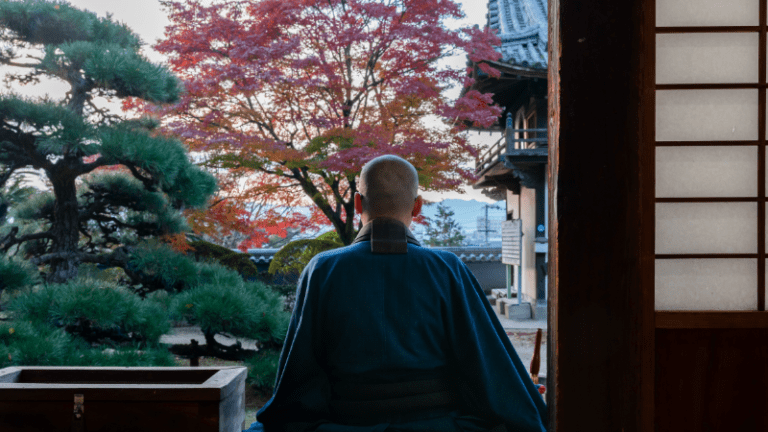Alan Watts reveals how to calm your mind
The English philosopher Alan Watts inspired during his lifetime by his talent to introduce Eastern philosophies to Westerners. Through his simple and easy to understand explanations he managed to reach thousands.
One of his most famous quotes is the following:
“Muddy water is best cleared by leaving it alone.”
- Alan Watts
He used this analogy on various occasions around the topic of inner peace or restlessness. For example, as a guide for fighting inner restlessness or dealing with thoughts during meditation exercises.
Chances are that even a person who is not much into philosophy will understand without difficulty what this quote is about:
Acceptance
Acceptance is a fundamental part of pretty much every philosophical school (for example, the Stoics but also in the medieval Japan), but especially in relation to oneself.
It is not uncommon for us to be more critical of ourselves than of everyone else. And when it happens again that we worry too much and we catch ourselves doing so, we try with all our might to banish or suppress these thoughts. The consequence is always the same:
Our thoughts are only racing more.
The reason is that we are going about it the wrong way. Another famous popular quote from Alan Watts striped as follows:
"You want the peace of the soul, but trying to quiet it is like trying to calm waves with an iron."
- Alan Watts
Luke has written a separate article on this topic, which you can read hereto learn more.
Allow the thoughts
So the trick is to just let your thoughts do their thing. What sounds simple in theory can only be achieved in reality with practice. Excitingly, I can't tell you when I learned to have this acceptance towards my thoughts. It just got better and better over the years and eventually I got to a point where the murky pool of thoughts cleared very quickly.
If you had met me earlier, you would know what that means. Especially in my teenage years, I was extremely restless. This inner restlessness sometimes got so out of hand that I couldn't hear my own thoughts. It's a bit strange to describe, but if you don't know this about yourself, you can imagine it as a jumble of countless voices. As soon as you try to listen to them, you realize that it is only incomprehensible babble.
I don't have that anymore, but restless thoughts still arise today. But in most cases I get them under control by doing nothing but accepting them.
Maybe you have heard before that you should accept your restlessness your thoughts, but it is quite possible that you still lacked some practical tips to be really successful.
Here is what I learned:
In the beginning, I focused on the fact that there are restless thoughts - so the water is muddy. I was aware that I should not pay attention to the individual thoughts, but then I often got too hung up on observing my thoughts. Collected though and not as individual ones but still I observed them. So I let them not quite in peace, which is what the quote advises.
So acceptance was only half the battle. Something else was needed: I had to give space to the thoughts. This may sound a bit counterintuitive, since thoughts are already too much for you, but our mind is an abstract space and you can just move somewhere else where you and your thoughts don't get in each other's way.
I noticed this when I continued with some activities in everyday life. You too can make use of this. At the beginning, it can be simple household chores:
- Water plants
- Vacuum cleaning
- Washing up
- Do laundry
Or whatever comes to mind.
Later on, you can tackle more challenging tasks without any problems:
- Writing
- Work
- and so on
If I am in meditation and notice how my thoughts become restless, I briefly make myself aware that this is okay and happens to everyone. Then I smile for a moment and lean back a little inside.
If that is not enough I use my Monkeymind. If you do not know what the Monkeymind is, you can find here the corresponding article to it, in short it is but a metaphor from Buddhism, which represents our brain as an easily distracted monkey.
As soon as we concentrate on breathing, all other thoughts fade into the distance and calmness returns to the point without stressing or trying not to think about the thoughts - which usually makes him think about the thoughts even more.
As Alan Watts once said so well:
"A person who thinks all the time has nothing to think about except thoughts."
So a person who thinks all the time has nothing to think about except thoughts.
I hope I could help you a little bit to bring peace into your thoughts.
Did you like this article? You can let us inform you about new articles:







